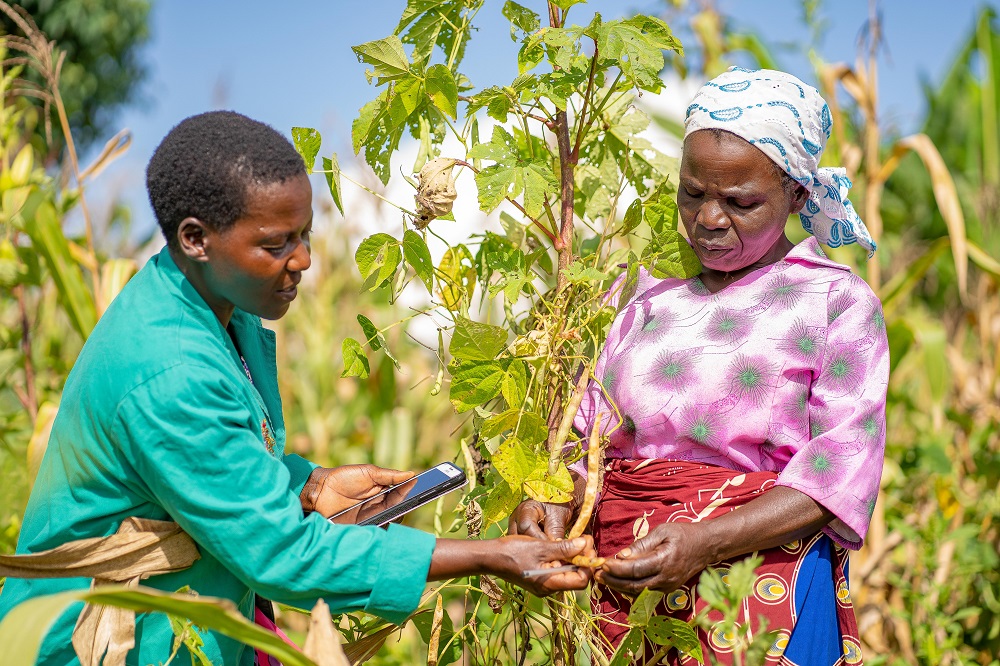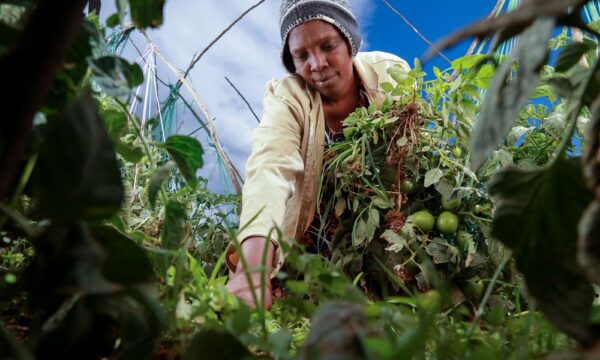The need for climate adaptation
Smallholder farmers are facing increasing impacts from droughts, floods, heatwaves and wildfires, as well as crop pests and diseases, being driven by climate change. And these issues are only projected to get worse as our world warms over the coming years. Smallholders are the backbone of our global food supply. They need the tools and information necessary to adapt to climate change impacts, build resilience to natural hazards, and produce food in safe and sustainable ways.
Ensuring that advice and information reaches as many smallholder farmers as possible is a challenging task. Many farmers live and work in poorly connected, disparately populated areas. Moreover, extension services are often under-resourced, meaning the opportunities for sustained, in-person support for farmers is extremely difficult. That’s where digital climate advisory services come into their own.

Digital climate advisory services
CABI has been at the forefront of supporting smallholder farmers with digital advisory services around the world – from digital soil health management tools in east Africa, to disease-free maize production advice in Pakistan, to sustainable coffee farming solutions in Colombia. Digital advisory services can help reach millions of smallholder farmers with up-to-date and locally-tailored information, and support them in decision-making to manage their farms in the most efficient and effective ways to cope with the hazards posed by climate change and other stresses. Recent evidence suggests over 33 million farmers in Africa alone are already making use of such services.
But access is uneven and unequitable. An estimated 300 million smallholder farmers worldwide still lack access to these vital services, and it is expected that financial investment for digital climate advisory services will need to massively increase to reach those currently unserved – from around $1bn over the last 5 years, to around $7bn by 2030. But ensuring equitable access and use of digital advisory services isn’t just about money.
Investing for equity
CABI worked with a group of peer organisations to explore the best practice approaches to ensure equity in digital services for smallholder farmers as part of the Global Centre on Adaptation’s new Investment Blueprint for Digital Climate Advisory Services. Drawing on CABI’s experience in supporting marginalised communities through innovative digitally-supported extension services like PlantWise+, and targeted activities to ensure inclusive engagement of women and youth, along with best practice approaches from peer organisations, the Investment Blueprint sets out six key principles to guide how that additional $7bn of required investment can best lead to equitable digital climate advisory services.

The future of smallholder farming is precarious when facing the risks posed by climate change. But taking early action to adapt, build resilience, and improve productivity, can help ensure that all farmers can continue to provide their communities and the wider world with safe, nutritious, and sustainable food, while moving out of income poverty.
Sustainble solutions
Investing in the right approaches can open up new markets for innovators and private investors, with over 300 million underserved farmers looking to make use of the information offered through digital advisory services. Novel approaches have demonstrated the value of ‘bundled’ services in not only reaching more marginalised farmers, but also addressing many of their other needs, from financial inclusion, to market information, to post-harvest storage and transport services. These models – often public-private partnerships – have also demonstrated promising financial viability.
To learn more about the work of the Global Centre on Adaptation and the role of digital climate advisory services, check out the new Investment Blueprint.
Related News & Blogs
Biodiversity loss: How can we reclaim our landscapes from threats to biodiversity?
On 22nd May, we mark the International Day for Biological Diversity. In this article, CABI’s Global Director for Invasive Species Dr Hariet Hinz looks at how we can reclaim our landscapes from threats to biodiversity. Biodiversity loss is proceeding at…
22 May 2025




